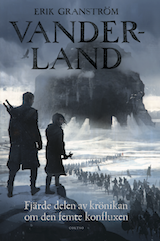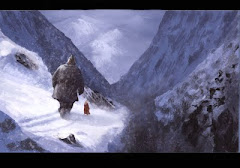I've recently read two books, that to my surprise and delight held unexpected similarities although they at a first glance seemed to be very unrelated:
The Soul of Sex, by Thomas Moore (1998)
and
The Marriage between Heaven and Hell, by William Blake (1793)
Moore is a psychotherapist, theologian and former monk, who with his book aims to do away with the concept of soul and body being different things, one good – one bad, one elevated – the other base, etc. He suggests that we can only live a full human life if we care for both, respecting bodily pleasures while placing these in a wider context. It's a very rewarding book to read, and I especially liked Moore's historical examples (among these, I find the etymology of the word ”fascination” hilarious: it stems from ”fascinum” – penis-shaped talismans carried by the Romans.)
Sensation can not be separated from imagination. We are always living in a story, always surrounded by images, and always percieving with imagination.
Blake's book basically says the same thing, illustrated in Blake's unique style, wanting to do away with the separation of soul and body, referred to as ”reason” and ”energy”, the former represented by anemic angels and the latter by passionately roaring devils. That is, he wants the two to marry:
Man has no Body distinct from his soul; for that called Body is a portion of a Soul discerned by the five senses, the chief inlets of Soul in this age.
In Ravenland
Apart from taking a personal interest in both books, I find them useful for the Ravenland novel I'm currently writing. My protagonist is a doula of The order of Egression, a bunch of people helping the restless dead to actually die in the name of the mysterious Nightwatcher God*. Books like the two mentioned help me flesh out the egressors' beliefs and hopefully make them more plausible. The Nightwatcher is a god of transition, of passages from one stage to the next – and not only life to death. He watches over opposites and the merging of these, since they are actually considered one. As Blake puts it:
Without contraries is no progression. Attraction and repulsion, Reason and Energy, Love and Hate, are necessary to human existance.
Enantiodromia was Carl Jungs name for when one extreme flips into what seems to be its opposite, but which is actually its yin-yang-ish complement. This I learned from Moores book.
To me, Nietzsche's attraction to passion and acceptance of both body and soul – good and bad experiences, hoovers over these waters. Now, I don't agree with everything that Nietzsche says, nor with Blake, Jung or Moore, but they are all inspiring – on a personal level and especially for writing fantasy novels.
* The Nightwatcher's name in Swedish would correctly translate into ”Being the Night”, which I find far cooler.

















